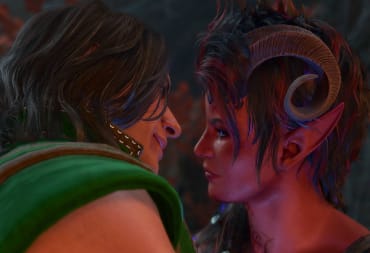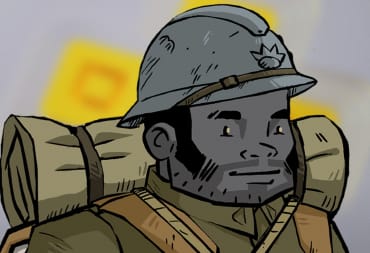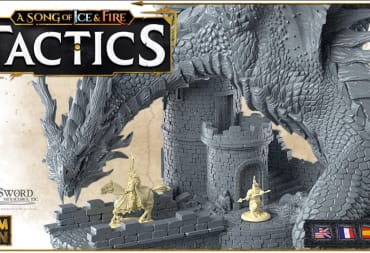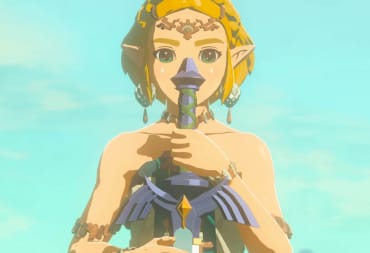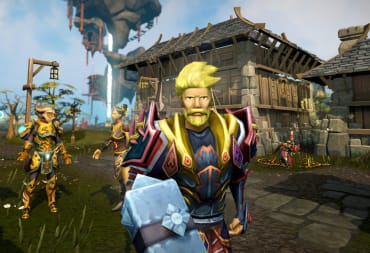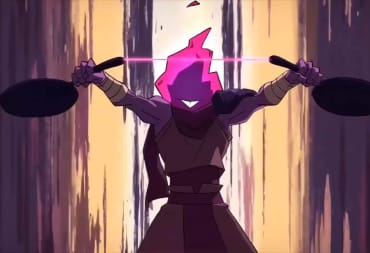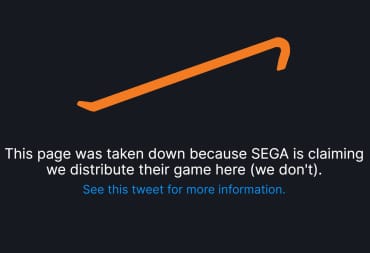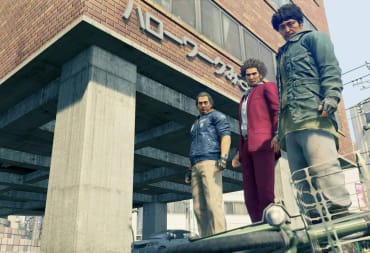The creativity of the developers at Ryu Ga Gotoku Studio truly knows no bounds. Yakuza: Like a Dragon sheds the series’ beat-’em-up roots to shake up the formula with JRPG mechanics. While the drastic change in combat seems like the cover story here, what lies underneath showcases the true charm of the long-running series. Despite a few hiccups with the new genre, the heart of this game lies in its story and characters.
If you already know what the Yakuza series is all about, Like a Dragon delivers in spades. If you’ve never played the series before, this is the perfect point to jump in, with the new cast and city. Kasuga, his crew, and the city of Ijincho provide a refreshing breath of air that makes it easier to overlook some of the little gaffs in the gameplay’s execution.

Ichiban Kasuga is Number One
The wacky world of Yakuza is back, but there’s a new protagonist at bat. Ichiban Kasuga, whose first name means "Number One," is everything that the previous series protagonist isn’t, and arguably for the better. After seven games with Kazuma Kiryu’s stoic yet kind passion, Kasuga’s earnest, brimming spirit gives this game a different feeling. Despite his tough-guy persona, he’s got a heart of gold. Even when he has to rough people up, he tries to understand their plight. When he's excited, he can't control the volume of his voice, and in general, he has trouble lying simply because of his good heart.
Kasuga makes for a compelling protagonist, and his natural charisma, leadership, and initiative don’t go unnoticed. He’s at the center of a lovable cast of characters, all of whom gather around his magnetism. They might have their own motivations when they first join the party, but there’s something about Kasuga that makes them want to see his quest to the end.
However, these party members aren’t mindless sheep. They all provide wonderful color commentary that flesh out the world of Ijincho, and their personal quests are worth unfolding, if not just for the XP bonuses. Within a couple hours of play, you’ll have a party made of an ex-Yakuza, a washed-up former detective, an umbrella-wielding homeless man, and a fiercely independent hostess. By the end of Yakuza: Like a Dragon, you’ll have six party members in total. Their dynamic plays out like they’ve known each other for years, despite the fact that they all meet Kasuga during the events of the game.

Outside of the party, you’ll find a wide cast of characters. For the most part, these characters are written well, even the two-bit villains that only have a few hours of screen time. The key players especially have motivations that keep the ball rolling, creating a narrative that doesn’t quit, even after the credits roll.
Much like Judgment before it, Yakuza: Like a Dragon features the original Japanese dub along with a localized English dub. For series purists, the Japanese dub will likely be the path forward, but it’s worth noting that the English dub is fantastic. Kaiji Tang, who voices Kasuga, carries the story with his boisterous performance that hits the energetic highs as well as the emotional lows. George Takei’s performance is equally excellent, as he powerfully portrays the weary yet impassioned Masumi Arakawa.

A Narrative Web You’ll Want to Untangle
Kasuga’s brave yet slightly naive optimism is put to the test in Yakuza: Like a Dragon’s compelling story. To kick things off, Chapter 1 does a fantastic job setting up this familiar yet new world. Kasuga gets a lot of exposition, so within the first hour, you’ll have a good understanding of this new character you’ll be inhabiting. As an orphan, he was raised by the people on the streets of Kamurocho, making his intense desire to help others feel believable and noble. He was raised to accept people for who they are, not where they come from.
After his character is established, events are set in motion that put Kasuga at the center of an intricate web of conspiracies. Just when you think you’ve uncovered one layer of the mystery, another one lies in wait. We won’t spoil anything of course, but the story touches on a lot of powerful, relatable themes.
Yakuza: Like a Dragon tells a story about finding people you would call family, blood relation be damned. It’s about realizing that rock bottom isn’t the end of a story, but the start of a new chapter. It’s a story about how absolute power corrupts absolutely, even when you have the noblest intentions.

The pacing of the story, however, could use some work. Toward the beginning of the third act of Yakuza: Like a Dragon, things start getting really good. The tension rises, and you know something big is about to happen. But before you can get to that big thing, the game asks you to raise three million yen. If you don’t play your cards right, this could take you hours and really put a damper on the intrigue.
Another thing you might notice, especially in the cutscenes, is a weird graphic glitch. On the PC build of Yakuza: Like a Dragon that I played, I noticed two stand-out glitches that persisted throughout the game. Nearly everyone's blazer jittered around in certain shots, and considering Kasuga almost always wears one, it's hard to ignore. Additionally, something wonky is going on with the reflections, where certain textures are projected on surfaces in a way that looks unnatural, as if there's a ghost in the room. These hitches are noticeable, but they don't detract too much from the overall experience.
Three million yen and ghost reflections aside, the twists and turns across the narrative are mind-bogglingly engaging, and it’s all in service to tell Kasuga’s heartwarming story. Some of the developments border on ridiculous, making it feel like a mad mix of WWE and soap opera, but that’s to be expected. It’s a Yakuza game, after all.

JRPG Combat, Warts and All
Transforming burly street brawling to methodical turn-based combat might sound insane, but Ryu ga Gotoku somehow accomplished it. JRPGs are known for some weird, over-the-top sequences, but Yakuza: Like a Dragon may take the cake. As an example, in the midst of battle, you can whip out your smartphone, call a friend, and next thing you know, a swarm of crawfish have pinched your enemy to death. In classic JRPG terms, you might call this a “summon.” Here, it’s called the “Pound Mates” system.
While this isn’t set in a high-fantasy world, a lot of the core strands of typical JRPG mechanics are here. Each character can pick up a job, and that determines their stat growth, weapon of choice, and skills. You can swap jobs at any time to mix things up, providing endless opportunities to play with your party composition and see what works for you.

In my Yakuza: Like a Dragon preview, I worried that the more oddball jobs (like Chef or Breaker) might be tough to classify in terms of the typical mental models we have for JRPGs. We all know what a Knight would do, but what about a Host? Well, after a couple hours, it all starts clicking more. You might need to dig deeper into the classes and their skills, but once you identify what your party needs, it’s easy to suss out what job changes you need.
The combat itself retains a lot of the punchiness of previous Yakuza games. When you attack, you have a chance to knock enemies down; if you follow up while the enemy is down, you do more damage. So despite the turn-based combat, the system encourages snappy decisions, maintaining a quicker pace than you’d expect. Additionally, most skills have a QTE attached to them, increasing your damage if you succeed. Overall, it’s a far more active turn-based game than you’d expect.

The Yakuza: Like a Dragon UI takes a page out of Persona 5’s playbook, mapping most actions to a button. You can even map your most-used skills to the D-pad, giving you quick access. If the turn-based cadence has you worried, these quality-of-life improvements help speed up the flow of battle, but parts of me wish Ryu Ga Gotoku did just a bit more. You’ll fight a lot of enemies both big and small, and after dozens of hours of play, it can feel tedious. This is made worse by some bosses and mini bosses feeling more like health sponges than challenges. This leaves you to mindlessly spam all your strongest attacks, stopping only to heal. Having to stay on top of the QTEs starts to feel a bit more like a nuisance too, especially after doing it for the same attacks hundreds of times.
To make matters worse, the fun of the combat takes a nosedive partway through the third act. Without spoiling anything, after raising that three million yen, the difficulty skyrockets. I found enemies more than 10 levels above my party’s average, forcing me to grind out some levels. Luckily, they introduce the battle arena around this time; despite presenting it as an optional side activity, it’s all but required to survive.

The Mean—but Fun—Streets of Ijincho
There’s more to Yakuza: Like a Dragon than its exciting narrative and decent combat. The franchise is known for its wide array of minigames and side missions, and Ijincho has them in droves. You’ll find a surprisingly in-depth and robust business management sim that will have you hiring and firing people to maximize profits. There’s even a Mario Kart knock-off that isn’t quite as impressive, but it’s a nice distraction to change everything up. If you want something without in-depth progression systems, there’s always the fun minigames, like karaoke, golf, shogi, and the arcade.
The myriad side quests will keep you busy too. Some of them are catalogued under the Part-Time Hero system, where Kasuga and his squad act as heroes for hire. Most of these amount to mindless fetch quests or “beat up this enemy” types of missions, and they give you points to increase your hero rank. The higher your rank, the more little storylines you unlock, along with some more tangible rewards (aka gear) at certain milestones. All in all, it's a nice bonus to tick off these objectives as you go, but it's by no means a priority.

Then there are side quests with dedicated little stories. Most of these require multiple steps, often meaning that you check in with people more than once. These can be hit or miss, with forgettable and predictable stories, but the ones that stand out are dripping with personality. You’ll save a crawfish from certain doom, you’ll help a masochist feel alive again, and you’ll punch a bear. Furthermore, the rewards are usually more interesting, often unlocking new Pound Mates or gear.
For some, this stuff is what makes the Yakuza series stand out so much in the industry. The good side quests are super weird and hilarious, while the wacky minigames and side content offer way more bang for your buck than you’d expect.

Yakuza: Like a Dragon - A New Hero for a New Generation
If you’re already a Yakuza loyalist, it probably doesn't take a lot of convincing to add this game to your shelf. Despite the shift in genre, the true appeal of these games lie in the engaging stories and over-the-top characters. Even with the occasional hiccups in gameplay and graphics, Like a Dragon’s powerful narrative and lovable cast shine through. For interested newcomers, this is the moment to find out what this whole Yakuza thing is all about. Ichiban Kasuga represents a new chapter in the series, as he tries to fill and grow into Kiryu’s shoes. He carries that responsibility with pride, and I’m eager to see where his next story might take him.
TechRaptor reviewed Yakuza: Like a Dragon on PC via Steam with a copy provided by the publisher. It launches on PC, Xbox One, Xbox Series X|S, and PlayStation 4 on Nov. 10. It also launches on PlayStation 5 on March 2, 2021.
Review Summary
Pros
- Lovably Wacky Yakuza Charm Always Delivers
- Winding Narrative Keeps You Guessing
- Strong, Memorable Characters Stick With You
Cons
- Third Act Gets Grindy
- Noticeable Graphic Glitches Can Be Distracting (on PC)
- Some Bosses Feel More Like Health Sponges
Have a tip, or want to point out something we missed? Leave a Comment or e-mail us at tips@techraptor.net


